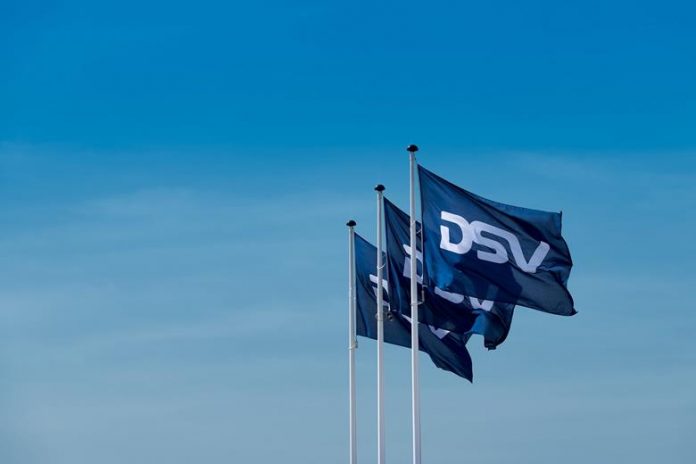DSV reported a sharp rise in airfreight volumes in the second quarter of 2025, driven by the recent acquisition of Schenker and a surge in frontloading activity, although challenging conditions in the automotive and consumer sectors weighed on organic growth.
The logistics giant completed its acquisition of Schenker from Deutsche Bahn on April 30, and began including the company’s results in its consolidated financial statements from May 1. As a result, Schenker contributed two months of performance to DSV’s second-quarter results.
In total, DSV handled 508,000 tonnes of air cargo during Q2, reflecting a 46% increase compared with the same period last year. For the first half of the year, airfreight volumes rose 23% year on year.
DSV noted that, while the Schenker contribution boosted totals, organic airfreight volumes fell by 2% year on year in the quarter. Adjusted for the company’s exit from low-yielding contracts, organic growth was slightly below estimated market growth.
Airfreight revenue rose 38.7% to Dkr18.6bn, while gross profit from airfreight increased 8.8% to Dkr4.3bn.
After a subdued start to the year, DSV said that global airfreight demand — excluding e-commerce and perishables — stabilised in the second quarter. This was partly due to customers shifting shipments from sea to air in anticipation of possible new tariffs. The company estimated that the addressable market experienced low single-digit volume growth during the quarter, while average freight rates were slightly higher than a year earlier due to volume frontloading and capacity adjustments.
Nonetheless, DSV highlighted ongoing weakness in the automotive and consumer goods sectors, which negatively affected airfreight volumes in those verticals.
The company’s Air & Sea division generated Dkr34.5bn in revenue, a 4.5% year-on-year increase when excluding the Schenker contribution and currency effects. This growth was largely attributed to stronger sea freight volumes, higher average freight rates, and expanded value-added services across both air and sea freight. Gross profit in the division rose 9.2% to Dkr8.5bn on a comparable basis.
Group-wide, DSV reported revenue of Dkr62bn for the quarter, up from Dkr41bn last year, while gross profit rose 59% to Dkr17.1bn. The company noted particular strength in the technology, aerospace, and defence sectors, while automotive and consumer goods remained under pressure.
Looking ahead, DSV expects annual synergies from the Schenker deal to reach around Dkr9bn by the end of 2028. Half of the integration is targeted for completion by the end of 2026, and 75% by the end of 2027. The first phase of integration will begin in the third quarter of 2025, with a focus on combining Air & Sea operations. This is expected to unlock new trade lanes, improve operational efficiency, and consolidate volume with suppliers.
Commenting on the results, group chief executive Jens Lund said: “The second quarter has been extraordinary, with the completion of the acquisition of Schenker. While delivering on our financial expectations with stable organic earnings and a positive contribution from Schenker, we continue our commercial approach by servicing our customers in a highly volatile and unpredictable market.”
He added that integration efforts were progressing well, including the formation of a global leadership team and constructive negotiations with German works councils. “We are confident that this acquisition will deliver significant benefits to our customers and create long-term value for our shareholders,” Lund said.
DSV handled 1.4m tonnes of airfreight in 2024, up 7.1% from the previous year, supported by growing consumer demand in the US and pre-shipment activity ahead of potential new tariffs in 2025.


